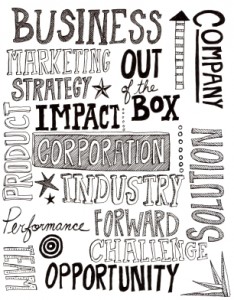 In graduate school, I learned to read fast and write big. I wrote dozens of papers for my graduate English seminars in my years at Miami University (of Ohio), but one stands out. Actually, I couldn’t tell you what the paper was about, because all that has stuck were the professor’s comments (let’s call her Professor M.). My writing was refreshingly clear, she said, except for a few wildly complicated, passive-voice, jargon-filled sentences, where I was trying to connect all of these ideas, and just didn’t quite get there. Professor M. had me pull those sentences out and rewrite them in plain, active language.
In graduate school, I learned to read fast and write big. I wrote dozens of papers for my graduate English seminars in my years at Miami University (of Ohio), but one stands out. Actually, I couldn’t tell you what the paper was about, because all that has stuck were the professor’s comments (let’s call her Professor M.). My writing was refreshingly clear, she said, except for a few wildly complicated, passive-voice, jargon-filled sentences, where I was trying to connect all of these ideas, and just didn’t quite get there. Professor M. had me pull those sentences out and rewrite them in plain, active language.(Let me pause for a moment and say that if you know anything about literary theory, you know it’s a crazy jargon-filled field, and that many, many, many literary critics could benefit from this kind of exercise. Too bad they didn’t all take her seminar.)
This jargon-busting exercise was a good lesson for my 23-year-old smarty-pants self: Don’t clutter up great ideas with ugly words. Still, I didn’t really get it until ten years later, when I started reading Malcolm Gladwell. His prose taught me the equation I still hold dear:
Clear language + great ideas = life-changing insights.
Can I Get a Rewrite?
As I connect with businesses on social media, and pursue the people who I know are my ideal clients, I often want to pull a page from Professor M.’s playbook. I want to circle the jargon-filled sentences on their web sites and ask them to rewrite in plain language.
I’m not talking about people who are writing solely to other people in their industry, like medical studies or legal briefs. I’m talking about the people who are trying to connect to other people because they want to solve a problem. Specifically, I’m talking about the language you use to explain who you are, why you do what you do, and the way you are going to make someone’s life better.
By the way, when I say jargon, I mean everything from phrases like, “Client retention should be strategically linked among various key business units within the enterprise to most effectively achieve key business objectives . . .” to, “You will only have the freedom and grand passion to be utterly, unmistakably, powerfully, authentically, and uniquely you if you consciously open the awesomeness of your mind to Absolute Truth.”
The people who write this stuff mean well. If you’re one of them, you know this. You’re probably brilliant at what you do. But I’m betting that you let the jargon in for one of two reasons.
1. You’re afraid. Nothing makes good sentences turn bad like fear. It’s hard to write clear copy from a good energy space when your brain is full of questions like: What if I don’t sound smart enough? What if my company doesn’t sound capable enough? What if I don’t have the right keywords? What if I’m exposed as a . . . fraud? Jargon makes it sound like you’re in on the secret, like you’ve studied all the right stuff and read all the right reports. You’re hoping it’s your secret handshake.
2. ¬†You’re juggling big stuff. Like me in my graduate seminar, you’re trying to connect a lot of ideas and concepts. They’re related, but in a complex way. So you tap into the existing industry buzzwords, in hopes that they’ll act as shortcuts for you. But they’re either clunky or clich√© (or both), and hardly mean anything at all.
The answer to both problems is the same: You do have something you really want to say; you just haven’t done all the work yet to figure out what that something is. You stopped just short of clarity. If you can get there, and replace jargon with your story, then you get to be the one who actually makes sense.
I mean, I know the talking heads (and the Talking Heads) told you to stop, but I’m here to tell you to start: Start making sense!
PS. Have you connected with my Facebook page yet? Head over there now and check it out!

